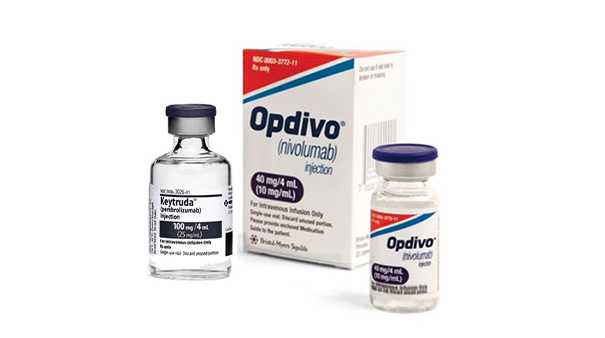BMS Opdivo fails in small cell lung cancer

Bristol-Myers Squibb has said its Opdivo immunotherapy has failed to improve on standard of care in patients with small cell lung cancer, who had relapsed following platinum-based chemotherapy.
BMS’ Opdivo (nivolumab) is a blockbuster but has fallen behind its arch-rival Merck & Co’s rival Keytruda (pembrolizumab) in terms of sales.
Merck has gained this advantage through Keytruda’s approval in first-line non-small cell lung cancer – a lucrative indication where BMS’ drug has failed to produce convincing results.
BMS is therefore searching for other more niche indications for Opdivo to maximise its sales potential – but in this case it has drawn a blank.
The phase III CheckMate-331 study showed that Opdivo had failed to improve overall survival compared with the standard chemotherapy of topotecan or amrubicin, where approved.
There were no surprises in terms of safety, with side effects consistent with those observed in previous trials involving Opdivo monotherapy.
CheckMate-331 is an open-label, randomised phase III study evaluating Opdivo monotherapy versus chemotherapy in patients with relapsed small cell lung cancer (SCLC) following platinum-based chemotherapy.
Patients were randomised to two treatment arms: an experimental arm assessing Opdivo; and an active comparator arm evaluating topotecan (or amrubicin, upon investigator’s choice, where locally approved for second-line SCLC treatment).
The primary objective was overall survival. Secondary endpoints included progression-free survival and objective response rate.
Sabine Maier, development lead, thoracic cancers, BMS said: “Small cell lung cancer is a highly aggressive disease in which significant unmet need remains. We are focused on researching innovative oncology therapies to improve outcomes for patients with lung cancer. We thank the patients, their families, and the physicians involved in the CheckMate-331 study.”












